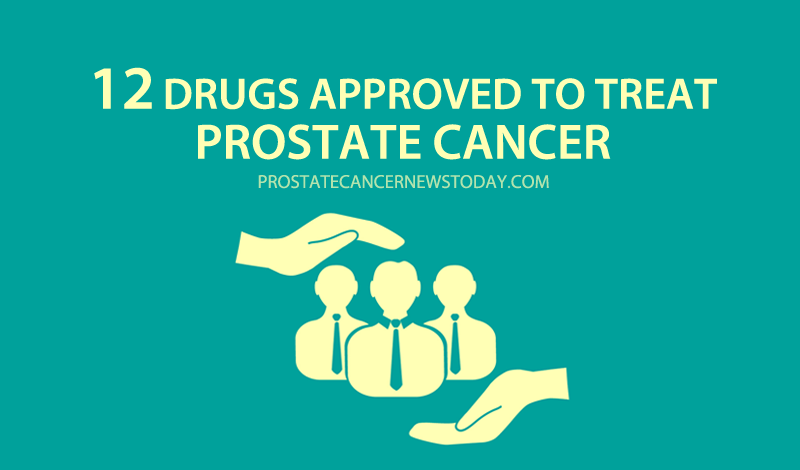Prostate cancer is a type of malignant tumor that affects men, and particularly older men. It attacks the walnut-sized prostate gland, which is located between the bladder and penis, in front of the rectum. The prostate is responsible for the production of a fluid that is expelled with sperm during ejaculation, composing the semen.
There are different approaches for the treatment of prostate cancer, depending on the patient’s age, stage and extent of the disease. The most common treatments include watchful waiting, drugs, hormonal therapy, chemotherapy,radiation therapy or surgery. However, there are also other therapeutic options, as well as complementary and alternative medicine (CAM).
Discover more about 12 drugs currently approved to treat prostate cancer:
- Abiraterone Acetate: Abiraterone acetate is a drug from the family of steroidalantiandrogen and is used for the treatment of prostate cancer in combination with prednisone. The male body naturally produces hormones called androgens. The most well known androgen in men is testosterone.
- Bicalutamide: Bicalutamide is one of the drug options included in a type of treatment for prostate cancer known as hormone therapy. The NCI Drug Dictionary defines the compound as a “synthetic, nonsteroidal antiandrogen. Bicalutamide competitively binds to cytosolic androgen receptors in target tissues, thereby inhibiting the receptor binding of androgens.”
- Cabazitaxel: Cabazitaxel is one of the drugs used in chemotherapy, and it is classified as a taxane chemotherapy drug, which means it was originally developed from the yew tree. The course of action of this type of treatment is based on stopping the cancerous cells from diving into two new cells, which consequently blocks the growth of the cancer.
- Casodex (Bicalutamide)
- Degarelix: Degarelix (Firmagon) is a type of drug classified as gonadotrophin-releasing hormone (GnRH) antagonist, which is used as first-line of treatment for patients who suffer from androgen-dependent advanced prostate cancer. The compound is included in the treatment option of hormone therapy or medical castration, which is based on the reduction of hormones to stop cancer growth.
- Docetaxel
- Enzalutamide: Enzalutamide is a hormone therapy designed for men who suffer from advanced prostate cancer. The hormones in the body are the trigger for the growth of cancer, particularly androgens. Therefore, this approach is meant to disturb the action of androgens. Enzalutamide is an androgen receptor antagonist, which means that it works by blocking the male hormones from signaling the cancer cell to grow.
- Flutamide: Flutamide is a drug treatment included in the category of hormone treatment for prostate cancer. The growth of prostate cancer is triggered by male sex hormones known as testosterone. Cancerous cells have special proteins known as receptors which take up testosterone, which is an androgen. Flutamide is an anti androgen, which means it works by stopping the testosterone from triggering the cancerous cells to divide and grow.
- Goserelin Acetate: Goserelin is an implant classified as a gonadotropin-releasing hormone (GnRH) agonist. It is indicated to be used in combination with radiation therapy or flutamide for the treatment of locally confined Stage T2b-T4 (Stage B2-C) carcinoma of the prostate. The growth of the prostate cancer is triggered by male hormones like testosterone.
- Jevtana (Cabazitaxel)
- Leuprolide Acetate
- Lupron (Leuprolide Acetate)
Learn more about prostate cancer: http://bit.ly/1MlKABv
Prostate Cancer News Today is strictly a news and information website about the disease. It does not provide medical advice, diagnosis or treatment. This content is not intended to be a substitute for professional medical advice, diagnosis, or treatment. Always seek the advice of your physician or other qualified health provider with any questions you may have regarding a medical condition. Never disregard professional medical advice or delay in seeking it because of something you have read on this website.

